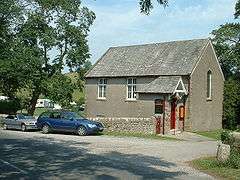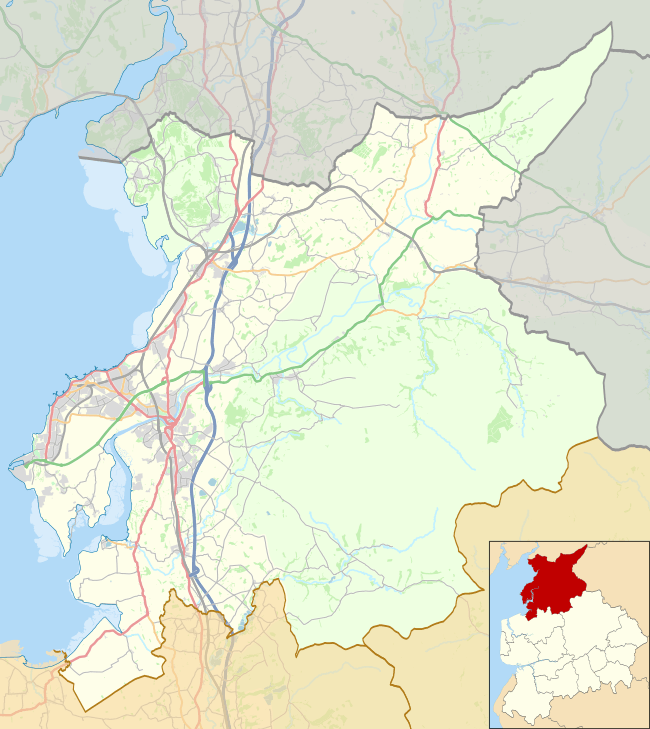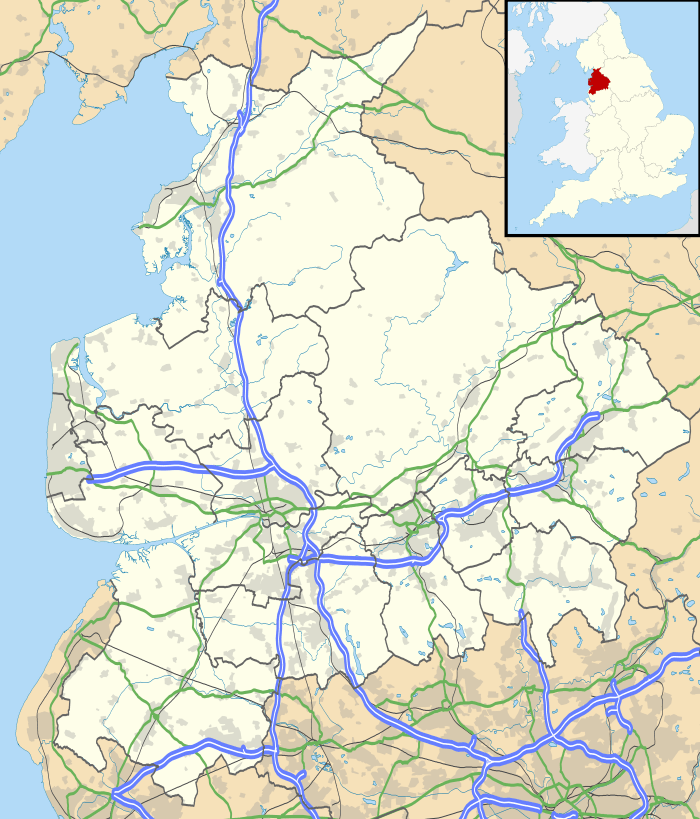Priest Hutton
Priest Hutton is a village and civil parish in Lancashire, England. It is located 5 kilometres (3 mi) north east of Carnforth, in the City of Lancaster, close to the boundary with Cumbria. In the 2001 census Priest Hutton had a population of 177,[1] increasing to 185 at the 2011 Census.[2]
| Priest Hutton | |
|---|---|
 Tewitfield Methodist Church | |
 Priest Hutton Location in the City of Lancaster district  Priest Hutton Location within Lancashire | |
| Population | 185 (2011) |
| OS grid reference | SD530737 |
| Civil parish |
|
| District | |
| Shire county | |
| Region | |
| Country | England |
| Sovereign state | United Kingdom |
| Post town | CARNFORTH |
| Postcode district | LA6 |
| Dialling code | 015242 |
| Police | Lancashire |
| Fire | Lancashire |
| Ambulance | North West |
| UK Parliament | |
The village, situated off the A6070 is in a rural area, and has few facilities of its own. The village school closed in 1978, and the nearest school and post office are at Burton-in-Kendal, north of the county boundary. Other facilities, such as Borwick and Priest Hutton Memorial Hall, and St Mary's Church, are shared with the neighbouring village of Borwick, south of Priest Hutton. Priest Hutton has no parish council, instead there is a parish meeting at the Memorial Hall.[3][4]
In the south west corner of the parish, at Tewitfield, there is a marina on the Lancaster Canal, currently the northern terminus of the canal's navigable section.
The former Archbishop of York, Matthew Hutton, was born in the village in 1529.[5]
See also
References
- Office for National Statistics : Census 2001 : Parish Headcounts : Lancaster Retrieved 14 February 2010
- "Parish population 2011". Retrieved 8 June 2015.
- "Priest Hutton Parish Meeting". Lancashire County Council. Archived from the original on 27 June 2009. Retrieved 8 February 2009.
- Lakin, Nick (24 July 2008). "Burton-in-Kendal feature". Lancaster Guardian. Johnston Press. Retrieved 8 February 2008.
- "'Townships: Priest Hutton', A History of the County of Lancaster: Volume 8 (1914)". British History Online. University of London & History of Parliament Trust. pp. 182–183. Retrieved 8 February 2009.